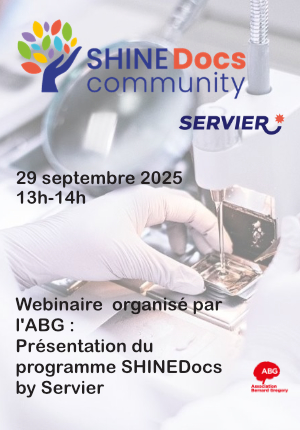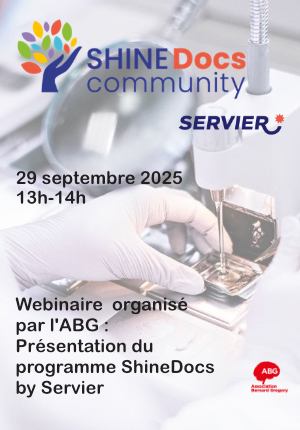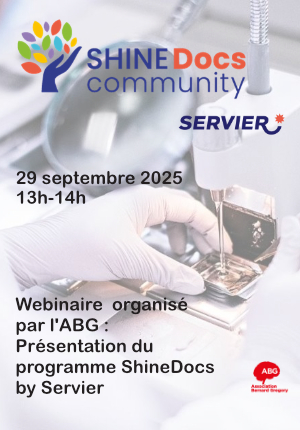PhD Position in Battery-Free Wireless Implantable Bioelectronics
| ABG-133535 | Sujet de Thèse | |
| 23/09/2025 | Autre financement public |
- Electronique
- Sciences de l’ingénieur
- Télécommunications
Description du sujet
We invite applications for a fully funded PhD position at the intersection of wireless systems, organic electronics, and neurotechnology.
Project Goal
Develop a wireless, battery-free, implantable analog interface using organic electrochemical transistors (OECTs) to sense neuromodulators like dopamine, serotonin, and acetylcholine. The readout will be performed via radio-frequency backscattering, enabling minimally invasive, real-time brain chemical monitoring in freely moving animals.
Your Mission
You will co-develop a new class of OECT-based battery-free implantable devices that combine:
- Wireless analog communication based on backscatter-modulation architecture.
- Co-design of front-end electronics and miniature RF antennas for chronic implantation.
You will prototype and characterize the wireless link (power + sensing), design and optimize sensor-resonator coupling, and participate in in vitro/ex vivo testing.
Supervision & Environment
- Denys Nikolayev (IETR Rennes): expert in wireless bioelectronics and wave control in tissues
- Simon Hemour (IMS Bordeaux): expert in RF energy harvesting and sensing
Additional collaborations with Nako Nakatsuka’s group (Neuro-X, EPFL), Damien Thuau (IMS), and Clémentine Bosch-Bouju (Neurocampus, Bordeaux).
You will work in an interdisciplinary team spanning neuroscience, RF engineering, and organic electronics, and benefit from international exchanges and top-tier research facilities (e.g., IETR’s M2ARS platform, IMS’ Organic electronics & Nanotech platforms, and EPFL’s NeuroTech labs).
Profile Sought
We welcome motivated candidates with a strong background in:
- RF circuits / analog electronics
- Electromagnetics / antenna design
- Wireless sensing / bioelectronics
- Prior exposure to implantable devices or organic electronics is a plus but not mandatory.
Prise de fonction :
Nature du financement
Précisions sur le financement
Présentation établissement et labo d'accueil
The CNRS (Centre National de la Recherche Scientifique) is France’s leading public research institution, renowned for advancing knowledge across a wide range of disciplines. With access to exceptional infrastructure, public and private funding, and world-wide collaborations, the CNRS provides an ideal environment for impactful research. Its community includes outstanding scientists, including Nobel laureates, who contribute to projects shaping the future of science and technology. Joining the CNRS means becoming part of a global network of excellence, where innovation thrives.
Site web :
Intitulé du doctorat
Pays d'obtention du doctorat
Etablissement délivrant le doctorat
Profil du candidat
Skills/Qualifications
- M.Sc. (or equivalent) degree. In accordance with the European Union’s funding rules for doctoral networks, applicants must NOT yet have a PhD
- RF circuits / analog electronics
- Electromagnetics / antenna design
- Wireless sensing / bioelectronics
- Prior exposure to implantable devices or organic electronics is a plus but not mandatory.
Vous avez déjà un compte ?
Nouvel utilisateur ?
Vous souhaitez recevoir nos infolettres ?
Découvrez nos adhérents
 CASDEN
CASDEN  Laboratoire National de Métrologie et d'Essais - LNE
Laboratoire National de Métrologie et d'Essais - LNE  Généthon
Généthon  Institut Sup'biotech de Paris
Institut Sup'biotech de Paris  PhDOOC
PhDOOC  ADEME
ADEME  Nokia Bell Labs France
Nokia Bell Labs France  ONERA - The French Aerospace Lab
ONERA - The French Aerospace Lab  CESI
CESI  MabDesign
MabDesign  SUEZ
SUEZ  Aérocentre, Pôle d'excellence régional
Aérocentre, Pôle d'excellence régional  ANRT
ANRT  Ifremer
Ifremer  Tecknowmetrix
Tecknowmetrix  TotalEnergies
TotalEnergies  ASNR - Autorité de sûreté nucléaire et de radioprotection - Siège
ASNR - Autorité de sûreté nucléaire et de radioprotection - Siège  Groupe AFNOR - Association française de normalisation
Groupe AFNOR - Association française de normalisation  MabDesign
MabDesign





